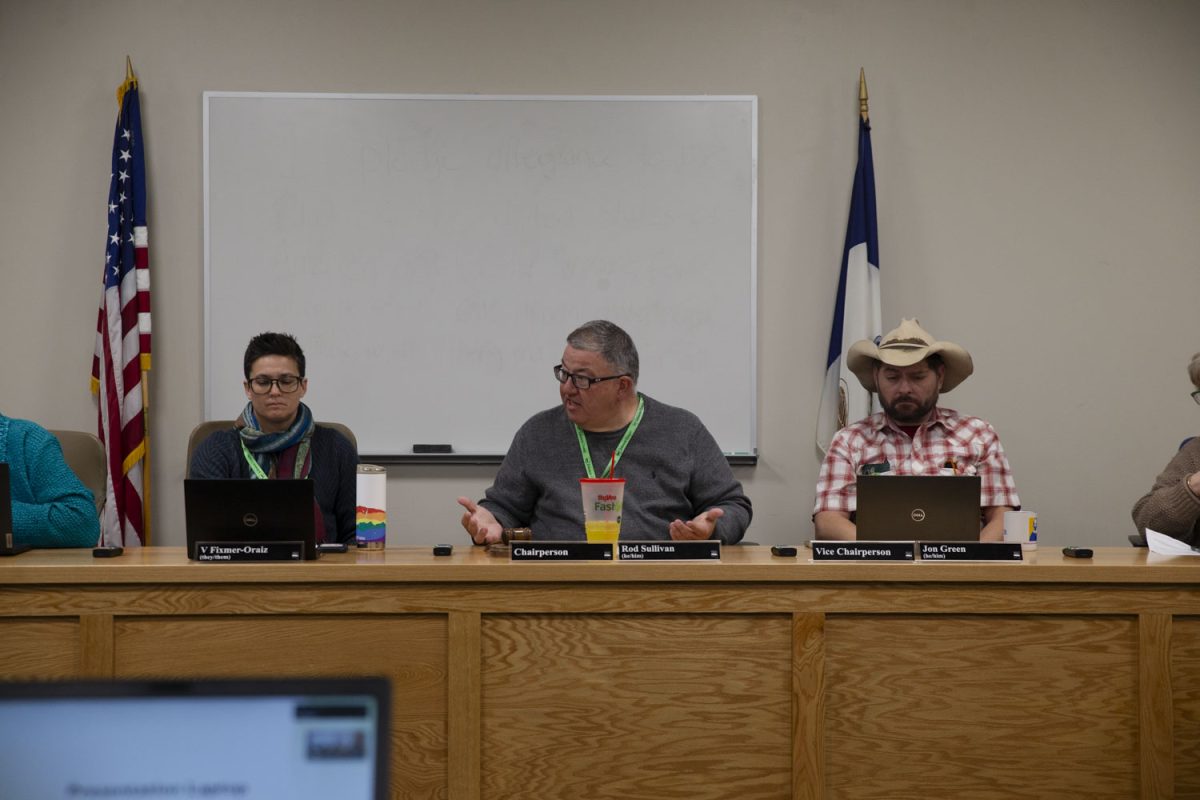After more than roughly two hours of community input and discussion on Tuesday, the vote was settled.
The Iowa City School District will see its controversial diversity policy implemented in the near future.
“I don’t view this policy as the end of the conversation; I view this policy as a way to move forward,” board member Sally Hoelscher said.
The School Board passed the third reading of the highly debated diversity policy on a 4-3 vote. The policy aims to equal socioeconomic levels throughout the district by distributing the percentage of students participating in the free- and reduced- lunch program across the district. Current levels differ as much as 65 percent between schools.
This policy defines minorities as “students who are receiving free or reduced-price lunches offered under the district’s nutrition plan.” Students not participating in this program are considered non-minorities.
Both School Board members and district parents expressed numerous concerns with the policy, including the language in the capacity clause.
“Everybody I’ve talked to, everybody I’ve listened to believes we need a policy and a plan to balance current socioeconomic disparities we have in our schools,” said board member Jeff McGuiness. “The question becomes not whether we need a plan, but this plan.”
With clear divides among the board members, some suggested a delay in vote.
“It feels like the community has fractured,” board member Patti Fields said. “It feels like our board has fractured, and I don’t know how you fix something so broken.”
Two amendments to adjust the policy failed to pass. One amendment included a deletion of the capacity clause and the other was to change the elementary school’s timeline for percentage shifts.
While the board moved forward with the vote, McGuiness said he would work with the board — despite his negative vote — to implement the policy in an efficient fashion.
Yet with the steady split in favor of the policy, Sarah Swisher emphasized the importance in taking the first step toward a diversity plan.
“We have room to make changes and to provide opportunities a lot of school districts don’t have,” she said. “It would be a shame to take a pass on this.”
With several community members, ranging from parents to students in the district, stepping forward, one local resident expressed her hesitation with the policy.
“I’m not sure the policy is the best option. I don’t think it’s meant to be a comprehensive solution,” Sara Barron said. “I think it’s a such a complex issue, and the policy oversimplifies what needs to happen in order to better student achievement.”
This vote followed concerns expressed last week from the state Department of Education that the policy would violate federal law.
“Our issue is how the free- and reduced-lunch eligibility is being used,” department spokeswoman Staci Hupp told The Daily Iowan. “It cannot be used for the local diversity plan that moves student within the district without consent. They can’t use it to potentially identify students receiving free and reduced lunch because it is against [Family Education Rrights and Privacy Act — federal law.”
The School Board addressed the concerns from the department but said because the policy does not have any definitive plans, it doesn’t violate any laws.
But the department maintains a change in language is in order.
“There are other economic indicators that the School District can use to carry out the diversity plan,” Hupp said. “We’re confident the School District can make adjustments, but those decisions will need to be made locally.”
But after roughly two hours of debate, the contested issue passed by one vote, allowing the district to move forward.
“It’s a continuing conversation we need to work together on,” Hoelscher said.






